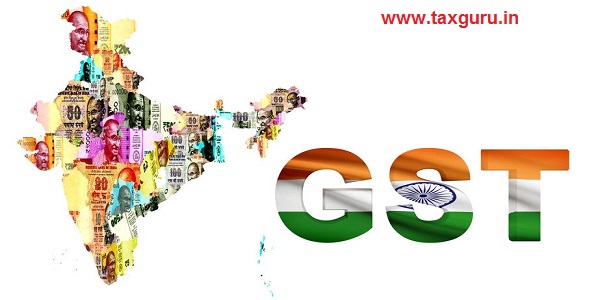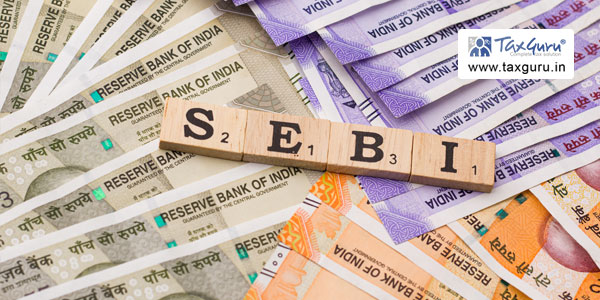Article-2
What amendments have been done in the “Constitution of India” for
Implementation of Goods and Services Tax (GST)
Introduction:-
- In this article we will understand what amendments have been done in the Constitution of India to take GST into action.
- Might be this is not a right time for this article because nowadays everyone is struggling for successful implementation of GST whether it would a Government, Professional or Businessman. Every day from layman to Government facing issues regarding GST whether it would be for GST Returns, System failure, frequently amendments, date extension or many more but still I wrote this article because before understanding GST, we should understand what changes have been done in the Constitution for implementation of GST, i.e. the Basic of GST.
Main Provision:-
√ Constitution (101st Amendment) Act, 2016 was enacted on 8th September, 2016.
- Significant amendments made by Constitution (101st Amendment) Act, 2016 are as follows:-
1.) In Article 366 of the Constitution,
New clause (12A) has been inserted to provide the definition of GST.
Article – 366(12A):-
“Goods and Services Tax” means any tax on Supply of Goods or Services or both except taxes on the supply of the alcoholic liquor for human consumption.
2.)The tax shall be levied as dual GST separately by the Union and States. For this, Article-246A has been inserted.
Article – 246A:- Special provision with respect to Goods and Services Tax
Clause – 1
Notwithstanding anything contained in Article 246 and 254. Parliament, and, subject to clause – 2, the legislature of every state, have power to make laws with respect to goods and services tax imposed by the union or by such state.
Clause – 2
Parliament has exclusive power to make laws with respect to goods and services tax where the supply of goods, or of services, or both takes place in the course of inter-state trade or commerce.
Explanation:-
The provision of this article, shall, in respect of goods and services tax referred to in clause-5 of Article – 279A, takes effect from the date recommended by the Goods and Services tax council.
In Simple words,
For the implementation of GST, Article 246 and 254 has been overruled. First we have to understand what Article-246 and 254 explain.
Article-246:- Subject matter of laws made by parliament and laws made by legislature
of States
In Crux:-
| Matters enumerated in List-I (VIIth Schedule of Constitution) | Parliament has exclusive power to make laws. |
| Matters enumerated in List-II (VIIth Schedule of Constitution) | State legislature has exclusive power to make laws. |
| Matters enumerated in List-III (VIIth Schedule of Constitution) | Parliament and legislature of any state have power to make laws. |
Article-254:- Inconsistency between laws made by parliament and laws made by legislature of States
In Crux: – It provides that laws made by parliament shall prevail over law made by legislature of the state.
- These both articles have been overruled with respect to Goods and Services Tax and power to levy GST empower to parliament and legislature of every state.
- For levy Integrated Goods and Services Tax (IGST), Parliament has exclusive power to make laws.
- As per Article–279A (5), GST Council shall recommend the date on which GST shall be levied on following Goods which are as follows:-
√ Petroleum Crude,
√ High Speed Diesel,
√ Motor Spirit (Commonly known as Petrol),
√ Natural Gas,
√ Aviation Turbine Oil.
- Taxes on entertainments and amusements to the extent levied and collected by a panchayat or a municipality or a regional council or district Council shall not be subsumed (included) under GST.
3.) Article – 269A:- Levy and Collection of Goods and Services Tax in course of Inter-state trade or Commerce
Clause – 1
Goods and Services Tax on supplies in the course of Inter-state Trade or Commerce shall be levied and collected by the Government of India and such tax shall be apportioned between union and states in the manner as may be provided by the parliament by laws on the recommendations of the GST Council.
Explanation:-
For the purpose of this Clause, supply of Goods and Services or both in the course of import into territory of India shall be deemed to be supply of goods, or services, or both in the course of inter-state trade or commerce.
In Simple words,
- Government of India (GoI) levy IGST.
- IGST shall be apportioned between Union and States as per manner provided by the Parliament.
- IGST will be imposed in case of import, i.e. IGST will be charged in case of Import of Goods or Services or both in addition to Custom duty.
Clause – 5
Parliament may, by law, formulate the principles for determining
- Place of supply, and
- When a supply of Goods, or of Services, or both takes place in the course of inter-state trade or commerce.
4.) Compensation to States for loss of revenue on account of introduction of Goods and Services Tax:-
Parliament may, on the recommendation of GST council, compensate to the states for loss arising because of implementation of Goods and Services Tax (GST) but for a maximum period of 5 years.
























Thank You sir/mam
Awesome explanation!!!!!